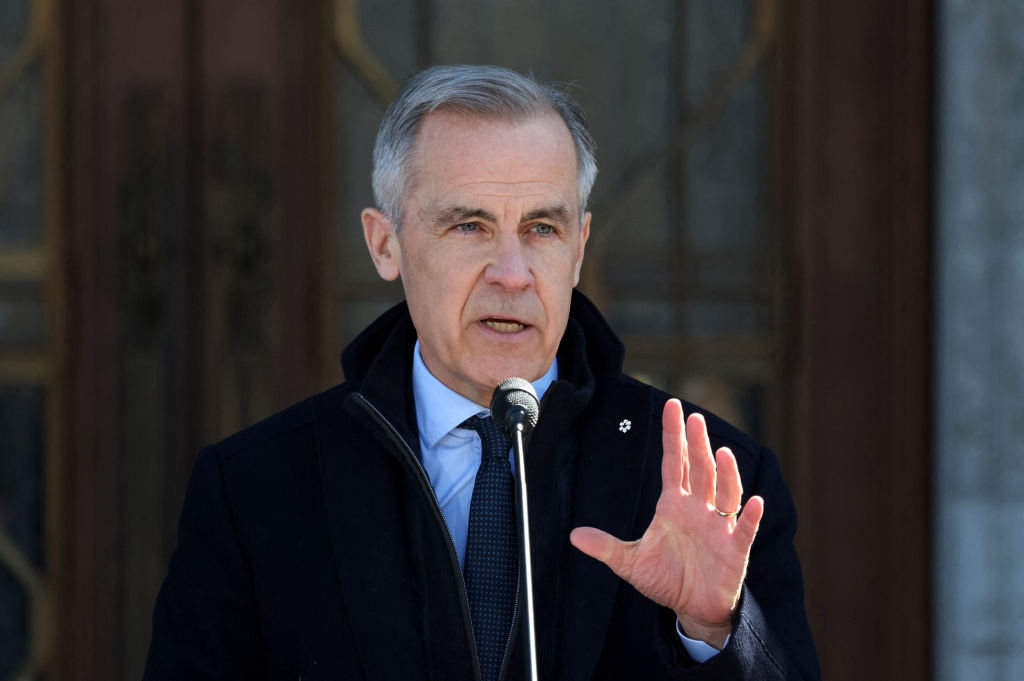At long last, we have a date. In just over a month’s time, Canadians will head to the polls to decide whether to end a decade of Liberal rule. Having succeeded Justin Trudeau as party leader on 9 March, Mark Carney has, predictably, opted not to play it long. By calling the election now, Carney conveniently does not have to face a hostile parliament – a showdown complicated by the fact that he does not actually have a seat in the House of Commons. Parliament had been due to return on Monday after being prorogued for two months. Instead, five weeks of campaigning now looms.
Carney’s strategy is obvious. He wants to depict himself as the statesman most able to stare down Donald Trump and his tariff threats. His first fortnight as Prime Minister included a trip to London to meet with Keir Starmer, with the former Bank of England Governor keen to sign up to the UK’s ‘coalition of the willing’ in Ukraine. In his statement today, Carney dwelt heavily on Trump’s comments about Canada as the ‘51st state’ which he called ‘the most significant threats of our lifetimes.’ ‘He wants to break us so America will own us’, Carney said. ‘We will not let that happen.’
Playing the patriotism card is a strategy which has worked well for Carney’s party thus far. Since January, the Liberals have made an extraordinary comeback in the polls: thanks partly to Trudeau’s exit from the scene but mainly due to the ‘rally around the flag effect’ prompted by Trump’s threats. Carney, with his past stewardship of the central banks of London and Ottawa, is keen to trade on his credentials as a statesman: the trappings of office have been exploited to the full during his brief premiership so far.
Of course, what Carney is less keen to talk about is the circumstances in which he took office – despite not even being an elected Member of Parliament. For ten years, the Liberals have ruled Canada and there is now a palpable desire for change. So tainted was Justin Trudeau’s government that even the Liberal membership thought that none of their own MPs deserved to succeed him to the premiership. Carney’s early moves have all been about distancing himself from his predecessor from sacking Trudeau’s immigration minister to killing his signature carbon tax. While Trudeau was a left Liberal, Carney wants to be seen as a Progressive Conservative. ‘He has nicked all of our policy ideas,’ says one Tory, ‘after spending the last decade dedicating his career to opposing them.’
Unsurprisingly, ‘change’ is very much the message of Carney’s opponents. Pierre Poilievre, the leader of the Canadian Conservatives, has fixed on the slogan: ‘Canada first, for a change’ – to try to wed patriotism with anti-incumbency feeling. Polls suggest that the Conservatives have struggled so find to find a killer attack line on the new Prime Minister. They previously tried ‘Carbon tax Carney’ – only for the onetime Net Zero evangelist to abandon his pet project. They may have more success with a focus on Carney’s business dealings and the prospect of a fourth consecutive Liberal term.
The campaign is likely to be a hard-fought one. Poilievre's team want to make full use of a $40 million war chest against a Liberal party short of funds. They eagerly await the leaders' debates, when Carney will have to discuss complex issues in both of the nation's two main languages. I understand that one of Poilievre's first observations when Carney announced his leadership bid was about the rustiness of his French language skills. There is a tendency for election campaigns to shift the dial more in Canada than they have recently done in Britain. A killer debate moment – like Brian Mulroney's 'You had an option, sir' line in 1984 – could prove crucial in a tight race.







Comments